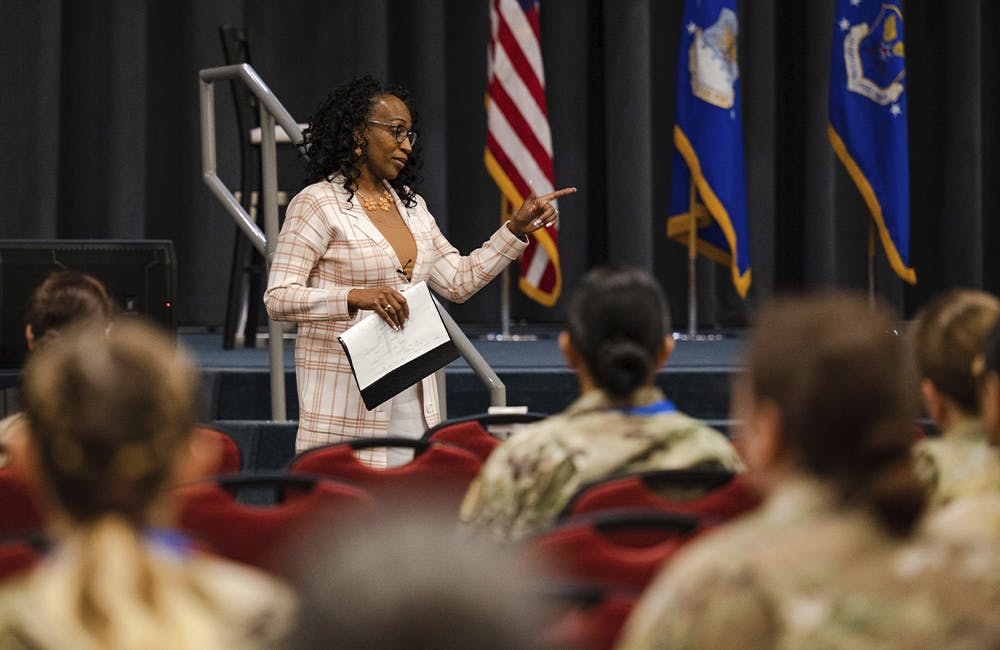New White House Memo Directs National Security Agencies on AI
The White House released new guidance to speed AI development while using the technology for the national security mission.

The White House’s new artificial intelligence memorandum aims to position the Intelligence Community and national security as leaders in using the technology against global adversaries.
“The stakes are high if we don’t act more intentionally to seize our advantages,” National Security Advisor Jake Sullivan told National Defense University last week. “If we don’t deploy AI more quickly and more comprehensively to strengthen our national security, we risk squandering our hard-earned lead.”
The memo outlines a three-pronged strategy for national security agencies to maintain secure American leadership in AI, harness AI for national security and strengthen international AI partnerships. It calls for the rapid deployment of AI systems into national security functions, including cybersecurity, intelligence operations and logistics.
The military services are currently using AI in various applications to further mission, including managing data and enhancing workforce operations. The memo noted that AI’s rapid development “could transform the national security mission.”
The plan also outlines steps for government to protect industry AI secrets. The memo calls for the intelligence agencies to collect information about “our competitors’ operations against our AI sector a top-tier intelligence priority” and directs agencies to “provide AI developers with the timely cybersecurity and counterintelligence information necessary to keep their inventions secure.”
“One playbook that we’ve seen [cyber adversaries] deploy again and again is theft and espionage,” said Sullivan. “The national security memorandum takes this head on.”
In memo takes Biden’s earlier executive order on AI a step further in agencies’ responsible development of AI and calls for additional federal funding for basic research, partnerships and initiatives.
Sullivan said last week that responsible AI development, if done properly, will strengthen national security.
“Ensuring security and trustworthiness will actually enable us to move faster, not slow us down,” said Sullivan. “Put simply, uncertainty breeds caution. When we lack confidence about safety and reliability, we’re slower to experiment, to adopt to use new capabilities and we just can’t afford to do that in today’s strategic landscape.”
To promote ethical development, the memo designates the National Institute of Standards and Technology’s (NIST) AI Safety Institute (AISI) as agencies’ point of contact with “private sector AI developers to facilitate voluntary pre- and post-public deployment testing for safety, security, and trustworthiness of frontier AI models.”
Conrad Stosz, AISI head of policy, said that the memo builds on the OMB’s March memo, which outlined how agencies would prioritize ethical AI development and responsible risk management.
“The [memo] also establishes guardrails for the use of AI in national security, a critical step for ensuring that the national security community can continue to rapidly innovate while protecting human rights and civil liberties,” Stosz wrote on LinkedIn.
The memo is part of the Biden administration’s larger efforts to get ahead of concerns about AI, while also promoting national security use of the technology and innovation in the technology.
“Opportunities are already at hand, and more soon will be, so we’ve got to seize them quickly and effectively, or our competitors will first,” said Sullivan.
This is a carousel with manually rotating slides. Use Next and Previous buttons to navigate or jump to a slide with the slide dots
-

Federal Leaders Revamp Tech Workforce, Policy
Despite the rise in interest of emerging technology, federal leaders see data, policy and the workforce as a best vehicle for change.
4m read -

Looking Back at the First Trump Administration's Tech Priorities
In his first term, Donald Trump supported cybersecurity, space policy and artificial intelligence development.
4m read -

Labor CAIO Outlines Responsible and Ethical AI Priorities, Use Cases
Department of Labor Chief AI Officer Mangala Kuppa outlined how her role is shaping the agency’s artificial intelligence strategy.
20m watch -

Elevating Cybersecurity in the Intelligence Community
The Intelligence Community is developing strategies to protect data and strengthen resiliency against emerging cyber threats.
30m watch








